As the coronavirus continues to spread, most countries around the world have now implemented some form of social distancing restrictions or lockdowns.
But some countries’ responses have proven tougher than most, and others have come up with some particularly inventive methods.
Tunisia: Robots enforce curfew
For half the day, every day, Tunisians can no longer leave their homes under any circumstance except to seek medical attention.
Between 6pm and 6am, military soldiers and police officers are out in force to make sure residents are abiding by the strict curfew.
The authorities have also deployed police robots fitted with self-driving technology and infrared and thermal imaging cameras to help enforce the curfew.
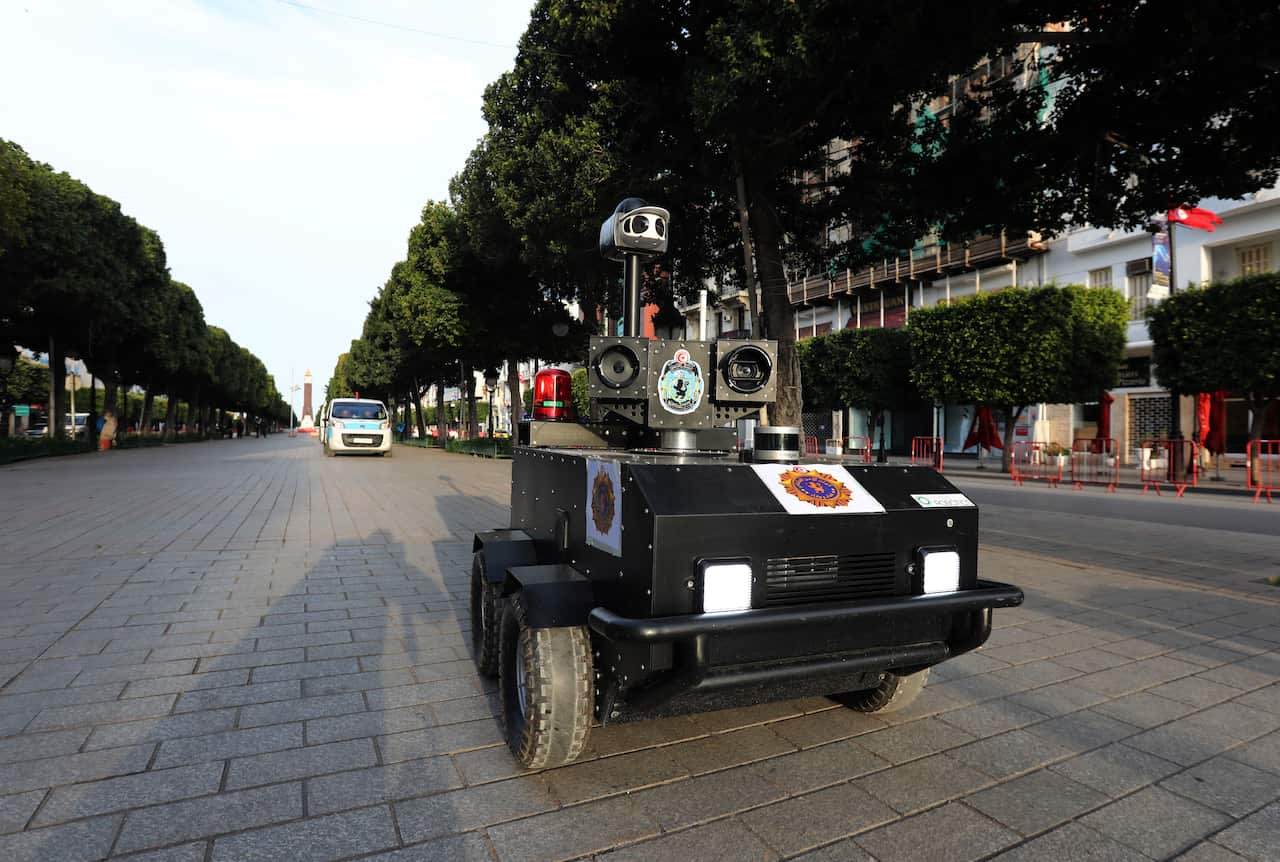
Panama: Women and men allowed out on alternate days
Both men and women are still allowed to leave their homes in Panama, but they can only do so on different days.
Women get Mondays, Wednesdays and Fridays, men get Tuesdays, Thursdays and Saturdays, and nobody can go outdoors on Sundays.
When they are allowed to leave the house, it can only be for two hours at a time.
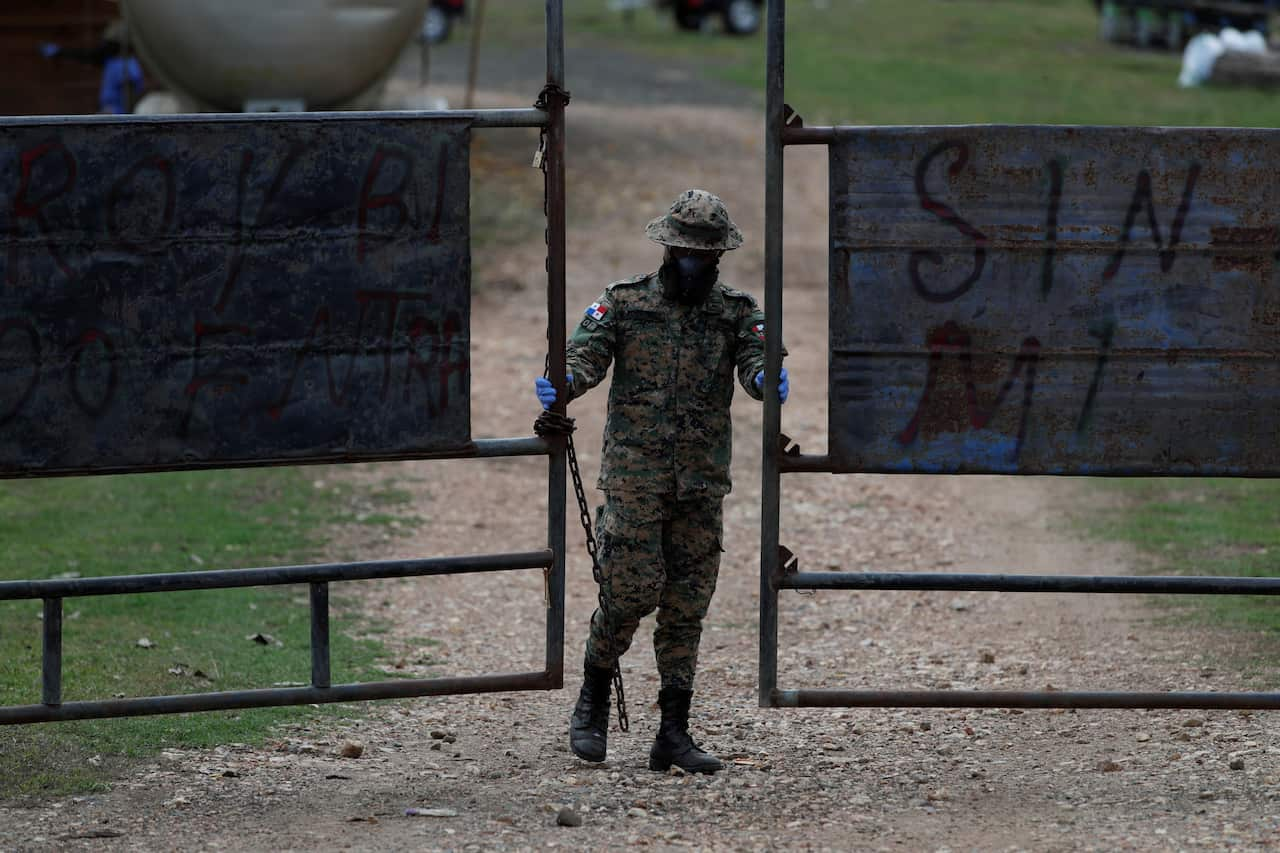
Dubai: Grocery permits
In Dubai, residents have to apply for a police permit to leave their homes to access essential services like groceries, and only one member of each household can apply.
The restrictions were tightened further this week, with residents now only entitled to one grocery store permit every three days.
The stay-at-home restrictions also mean residents can only withdraw cash once every five days, the permit for which only allows them to be outside their home for one hour in total.
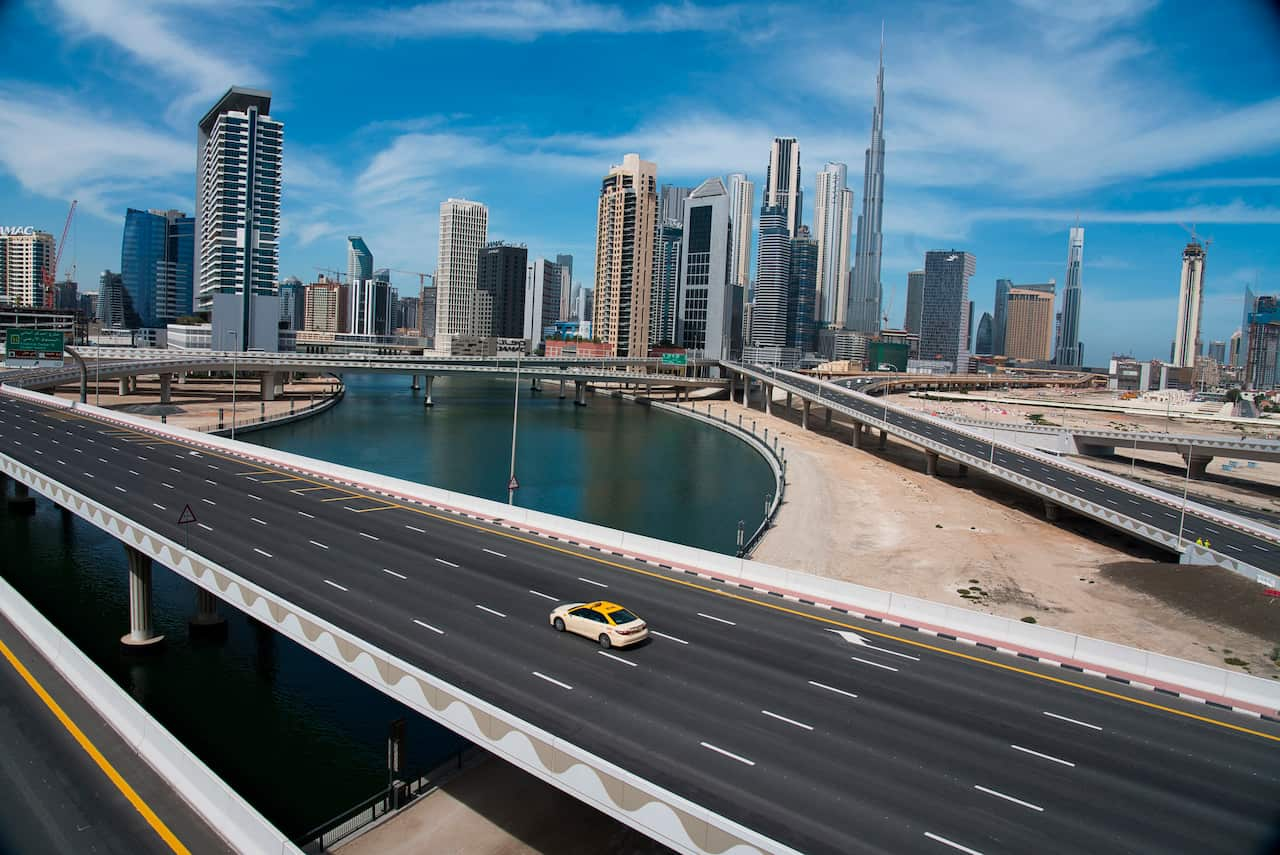
Turkey: Teenagers locked down
Age-based restrictions have been handed down in Turkey, with the weekday stay-at-home order only applying to citizens under the age of 20 and over the age of 65.
While the over-65s were forced to stay home due to their increased vulnerability to the virus, the under-20s curfew was introduced after young people were repeatedly found breaking the country’s stay-at-home orders.
The borders to 31 Turkish cities have been closed to all vehicles, except to allow essential supplies to pass through.
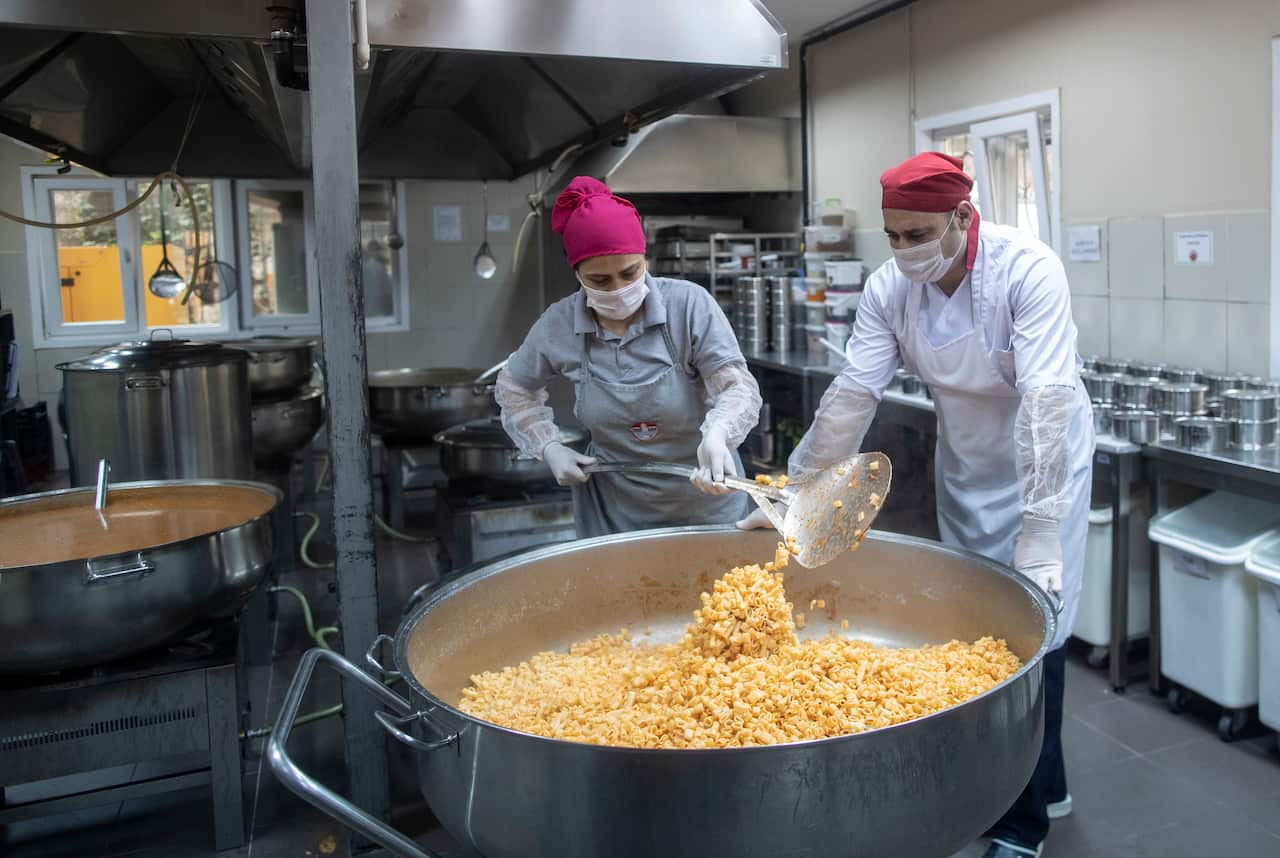
Colombia: ID cards determine when to leave home
In some parts of Colombia, residents can only leave the home on certain days determined by the last digit of their national identification cards.
One city has mandated that people holding ID cards ending in a 0, 4 or 7 can go out on Mondays, while those with cards ending in the digits 1, 5 or 8 get Tuesday as their one day to leave the house.
Other parts of the country are using the number plates on people’s vehicles in a similar system.
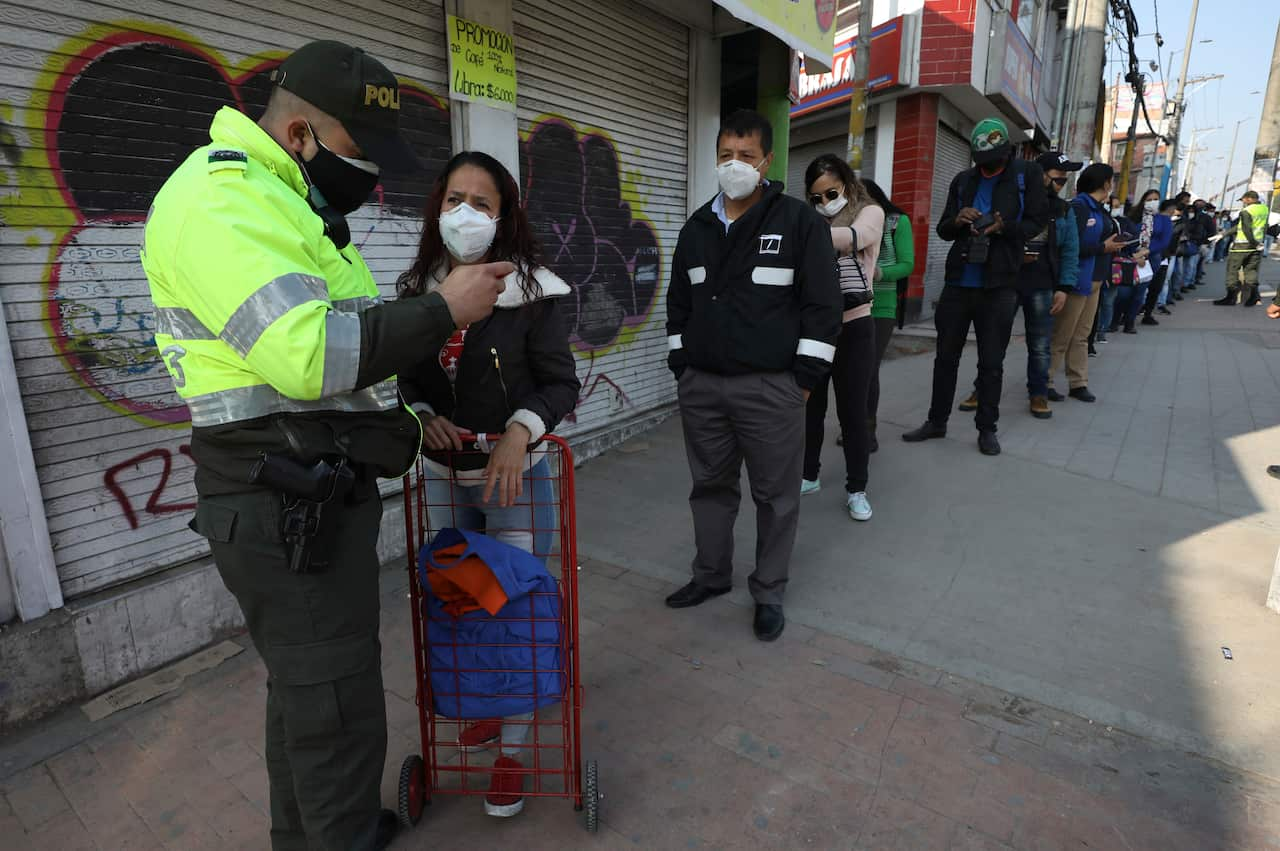
Sweden: voluntary guidelines
Sweden has gone against the grain in its coronavirus response, allowing life to continue as normal for the most part while only introducing a few voluntary guidelines.
Restaurants are open for business, schools are still running and European Union travellers are still allowed to enter the country.
Swedish officials say keeping their citizens both mentally and physically healthy is among their top reasons for not enforcing a strict lockdown, which would see most people stuck at home.

South Korea: testing 'phone booths'
A hospital in the South Korean capital of Seoul has installed special “phone booths” around its perimeter that provide coronavirus testing to residents in under ten minutes.
When someone enters the booth, they have a quick consultation over intercom with a medical worker on the other side of the glass who can then place their arms in a pair of rubber gloves built into the dividing wall to take a swab from the person’s nose and throat.
The booths use negative air pressure and are disinfected and ventilated after each consultation, which take an average of just seven minutes.

People in Australia must stay at least 1.5 metres away from others and gatherings are limited to two people unless you are with your family or household.
If you believe you may have contracted the virus, call your doctor (don’t visit) or contact the national Coronavirus Health Information Hotline on 1800 020 080. If you are struggling to breathe or experiencing a medical emergency, call 000.
SBS is committed to informing Australia’s diverse communities about the latest COVID-19 developments. News and information is available in 63 languages at sbs.com.au/coronavirus

